Five Strategic Pillars of Caritas Marsabit
Context and Challenges
Marsabit County faces extreme water scarcity due to low and erratic rainfall, limited groundwater resources, and poor water infrastructure. About 50% of the rural population and 60% of the urban population depend on unreliable water sources such as boreholes, shallow wells, and water pans. Poor sanitation coverage (only 35.4% of households have access to sanitation facilities) and open defecation contribute to high rates of waterborne diseases.
Strategic Interventions
Caritas Marsabit aims to improve access to clean and safe water, promote proper sanitation, and enhance hygiene awareness through the following actions:
- Expanding water infrastructure by constructing and rehabilitating boreholes, shallow wells, earth dams, and water pans.
- Implementing community-based water governance by strengthening Water Management Committees (WMCs) and Water Resources User Associations (WRUAs) to ensure sustainable use of water resources.
- Promoting household water treatment technologies and safe storage practices to reduce contamination.
- Supporting schools and health facilities by providing safe drinking water, sanitation facilities, and hygiene education.
- Encouraging the adoption of safe hygiene practices through Community-Led Total Sanitation (CLTS) initiatives and hygiene promotion campaigns.
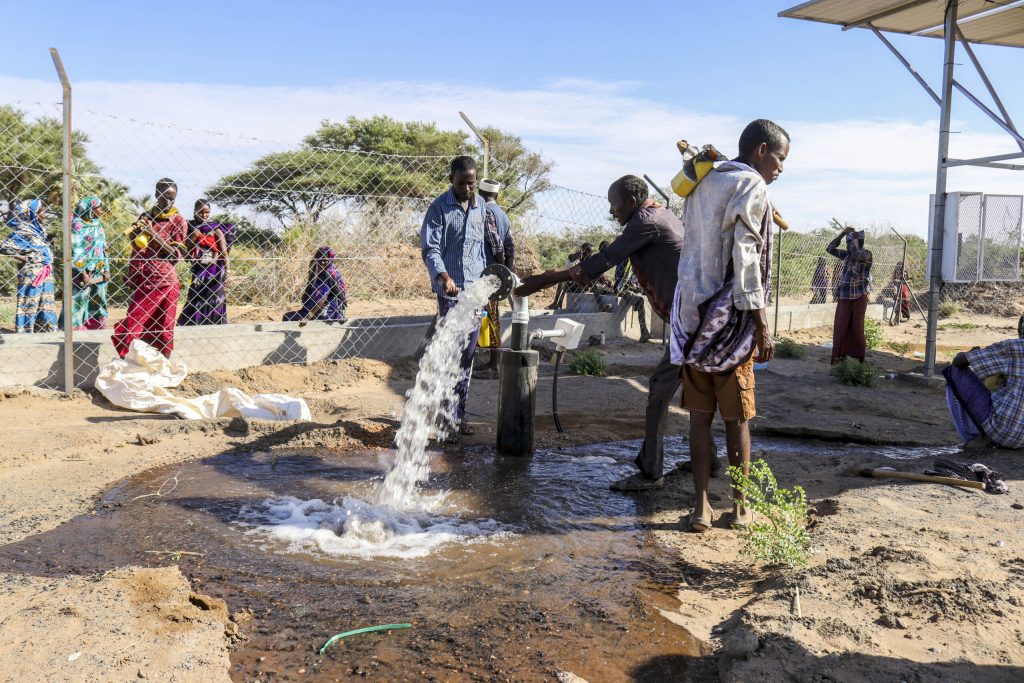
Expected Impact
- Increased access to safe and sustainable water sources for both domestic and livestock use.
- Reduction in waterborne diseases through improved sanitation and hygiene awareness.
- Strengthened community ownership and management of water resources.
Context and Challenges
Marsabit County experiences frequent inter-ethnic conflicts driven by competition for scarce resources (water, pasture), political tensions, and historical grievances. The proliferation of small arms and the porous border with Ethiopia further fuel insecurity. Poor governance and marginalization of women and youth exacerbate social inequalities.
Strategic Interventions
- Conduct peace dialogues and reconciliation meetings involving elders, religious leaders, women, and youth to resolve conflicts.
- Engage in cross-border peace initiatives between Kenyan and Ethiopian communities.
- Provide civic education and human rights awareness to empower communities to advocate for equity and justice.
- Advocate for policy reforms that promote social cohesion, transparency, and accountability in local governance.
- Strengthen local governance structures to enhance participation in policy decision-making.
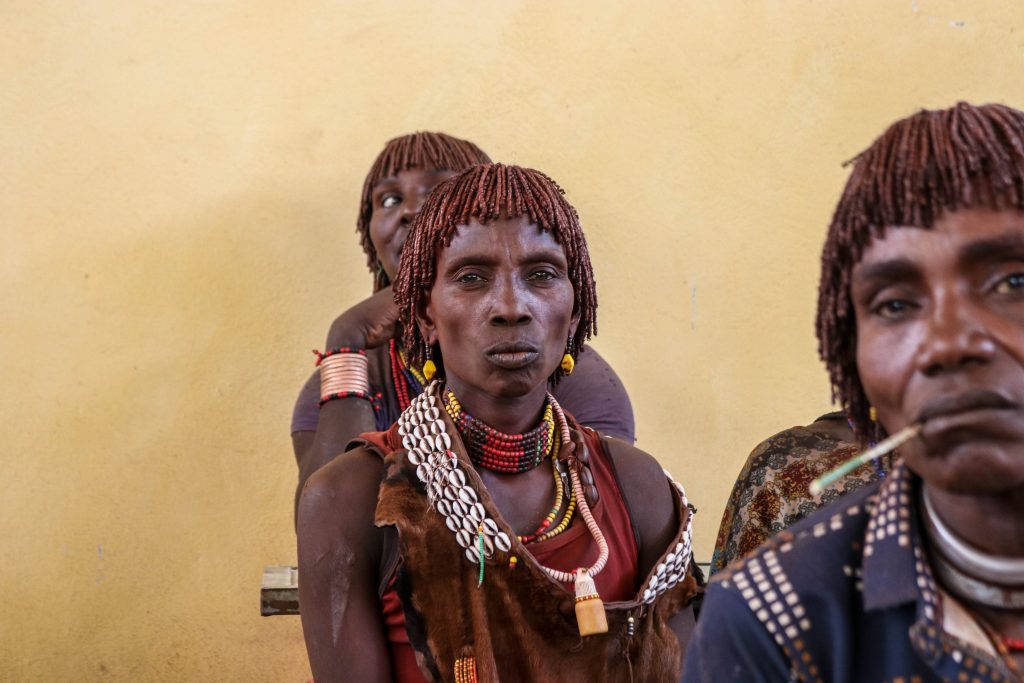
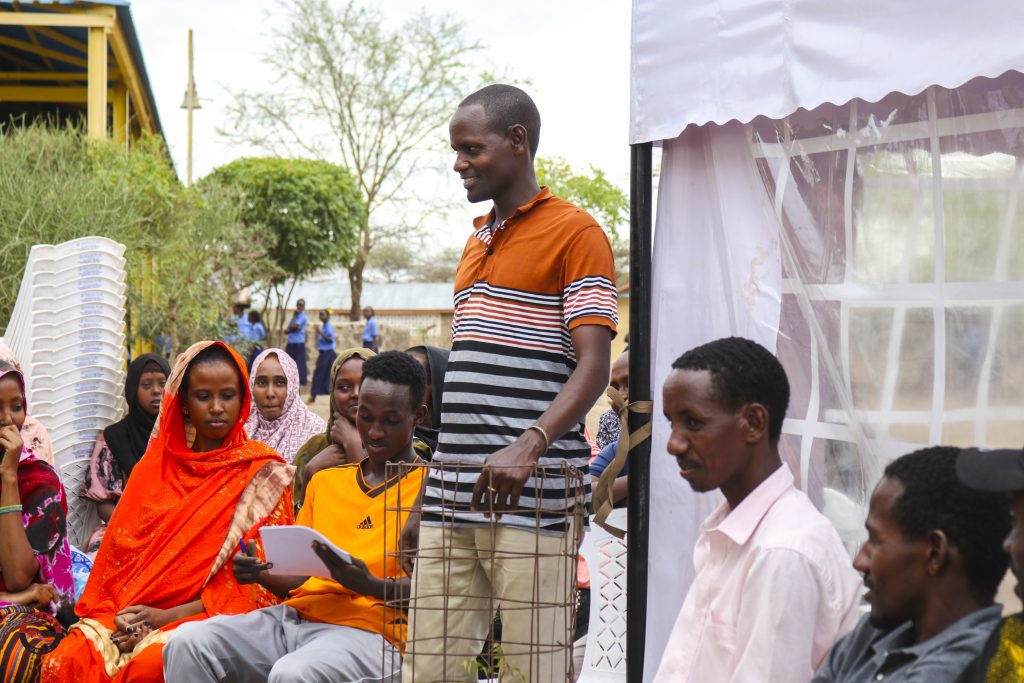
Expected Impact
- Increased household income and reduced dependence on humanitarian aid.
- More youth and women engaged in economic activities.
- Strengthened livelihood resilience through income diversification.
Disaster, Climate Change, and Natural Resource Management
Context and Challenges
Marsabit County is prone to frequent droughts, desert locust invasions, livestock diseases, and floods, leading to food insecurity and livelihood losses. Poor natural resource management has resulted in deforestation, soil degradation, and loss of biodiversity. Communities heavily depend on livestock and limited agriculture, making them highly vulnerable to climate shocks.
Strategic Interventions
Caritas Marsabit seeks to enhance climate resilience and disaster preparedness through:
- Promoting climate-smart agriculture by supporting drought-resistant crops, agroforestry, and soil conservation techniques.
- Strengthening community-based early warning systems to improve disaster preparedness and response.
- Supporting reforestation and afforestation initiatives to combat desertification and enhance biodiversity.
- Encouraging the adoption of renewable energy solutions such as solar-powered irrigation systems.
- Enhancing rangeland management and sustainable grazing practices to reduce land degradation.
- Providing livelihood diversification support to reduce reliance on climate-sensitive pastoralism.
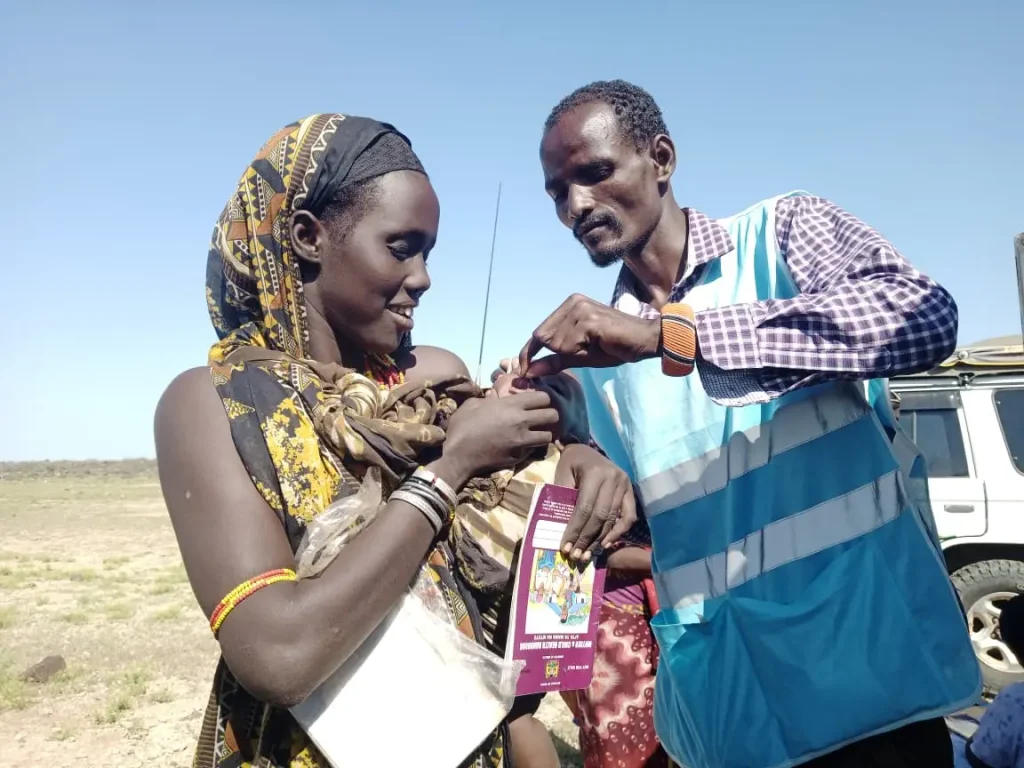
Expected Impact
- Increased community resilience to climate change and disasters.
- Enhanced natural resource conservation and environmental sustainability.
- Strengthened food security and alternative income sources for vulnerable households.
With livelihoods in Marsabit being predominantly livestock-based and highly climate-sensitive, Caritas Marsabit promotes sustainable food security and income generation. The program supports vulnerable households—especially women and youth—with training, resources, and market access to improve agricultural productivity, diversify income sources, and enhance livestock production and marketing.
The program`s specific objectives include
- To promote diverse income generating activities
- To enhance Livestock production and marketing
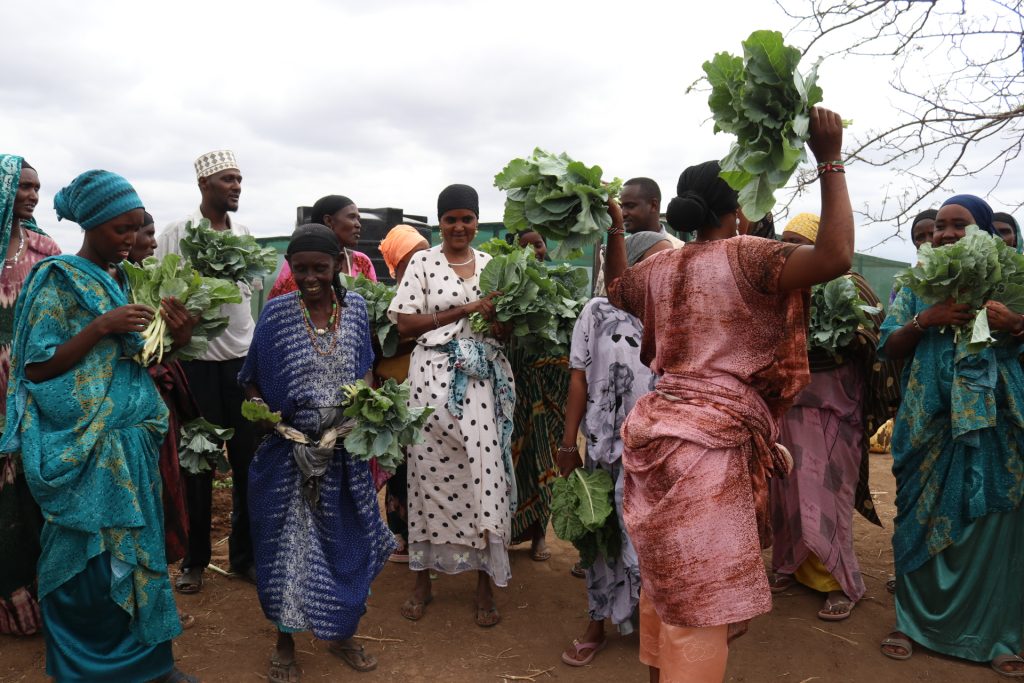
Caritas Marsabit, in partnership with CAFOD, is implementing innovative and sustainable interventions to build resilience among pastoralist and agro-pastoralist communities in Marsabit County. Our focus is on climate-smart, income-generating initiatives that restore dignity and promote self-reliance
These families now have the means to grow food year-round, improve nutrition, and boost income.
As part of the Resilient Livelihoods Project, Caritas Marsabit is empowering communities with sustainable beekeeping practices tailored for arid and semi-arid regions.
What we support:
- Training on modern beekeeping techniques
- Provision of beehives and protective gear
- Support for honey harvesting, packaging, and marketing
Impact: Vulnerable households now generate income through honey production, promoting food security and environmental conservation.
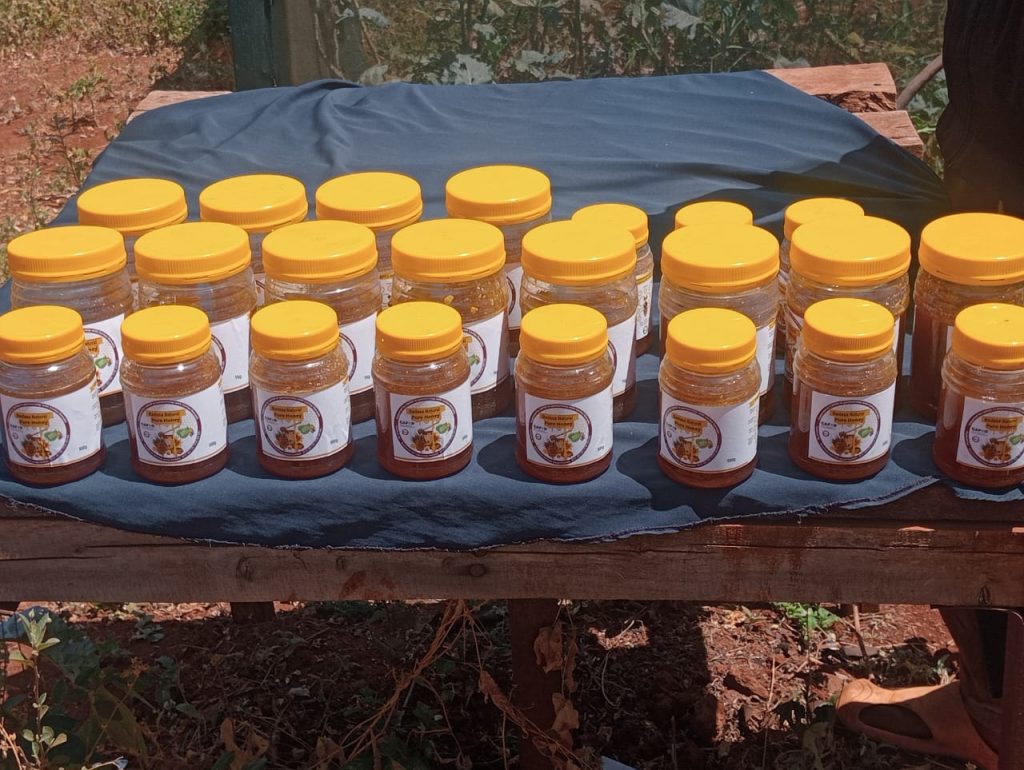
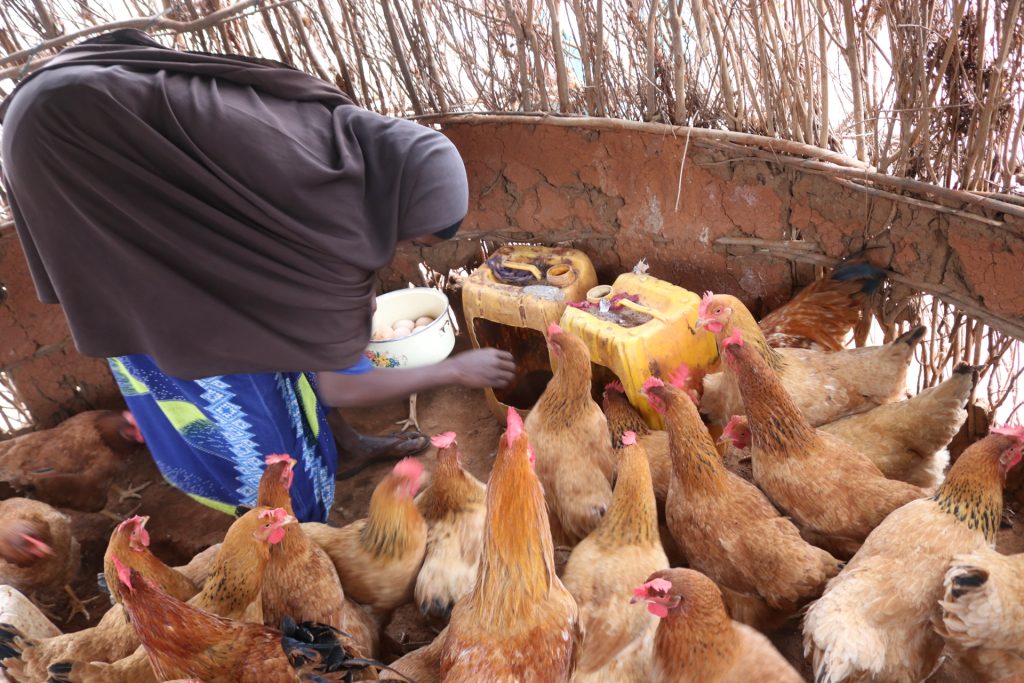
To improve nutrition and income generation, Caritas Marsabit supports poultry production among poor and marginalized households.
What we provide:
- Technical training on poultry management
- Distribution of local chicken breeds
- Ongoing veterinary and feed support
Impact: Families now have access to eggs and meat for consumption and sale, enhancing household resilience to climate shocks.
These interventions are implemented alongside activities like saving and lending, hydroponic farming, and rangeland management, ensuring a holistic approach to sustainable livelihoods in Marsabit County.
To combat the harsh effects of climate change and environmental degradation, Caritas Marsabit is promoting tree planting through community-based nursery establishment and training in Antut, Qolob, Funan Nyata, and Badasa.
What we provide:
- Hands-on training at demonstration nursery sites
- Skills in site selection, soil preparation, seed sowing, potting, and nursery design
- Techniques for shade construction and watering
Impact: Communities gain the skills and tools to produce healthy tree seedlings for planting, greening their environment while improving food security and livelihoods.
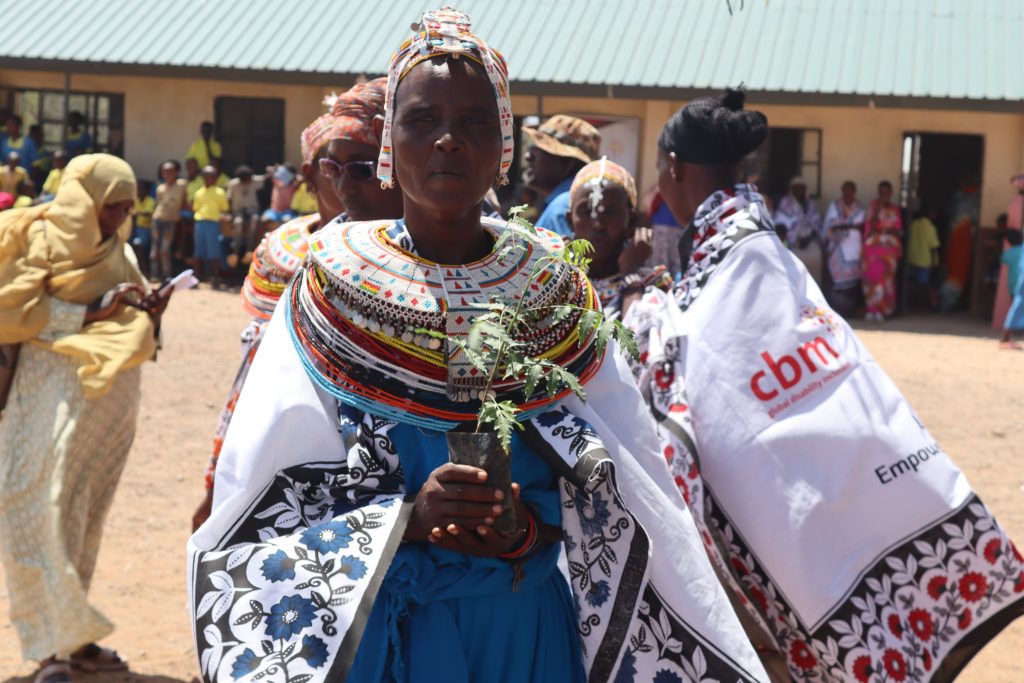
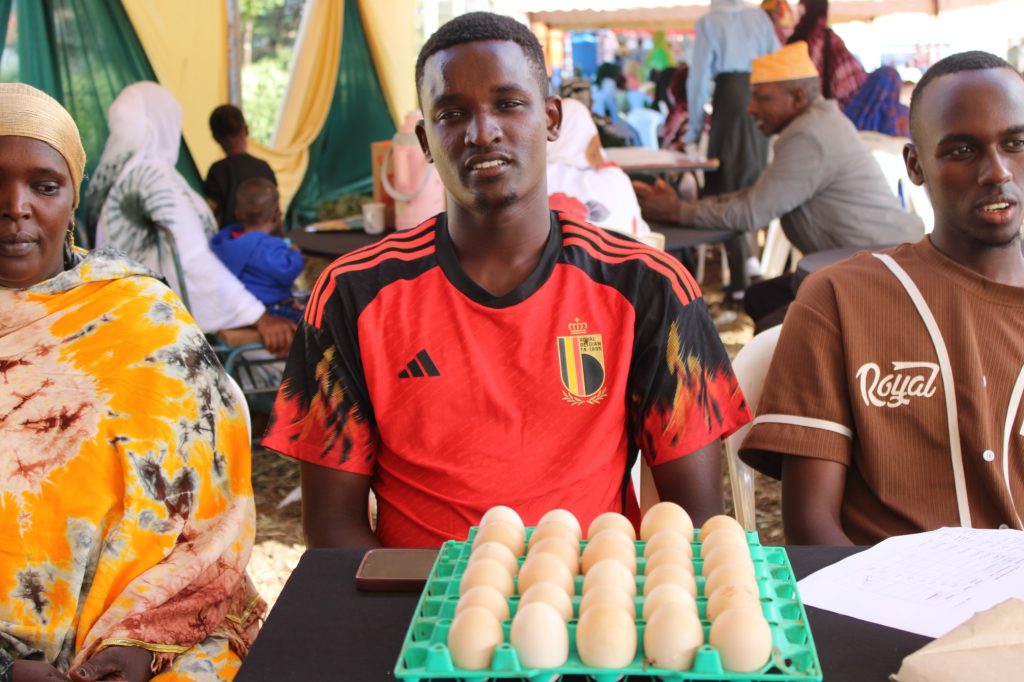
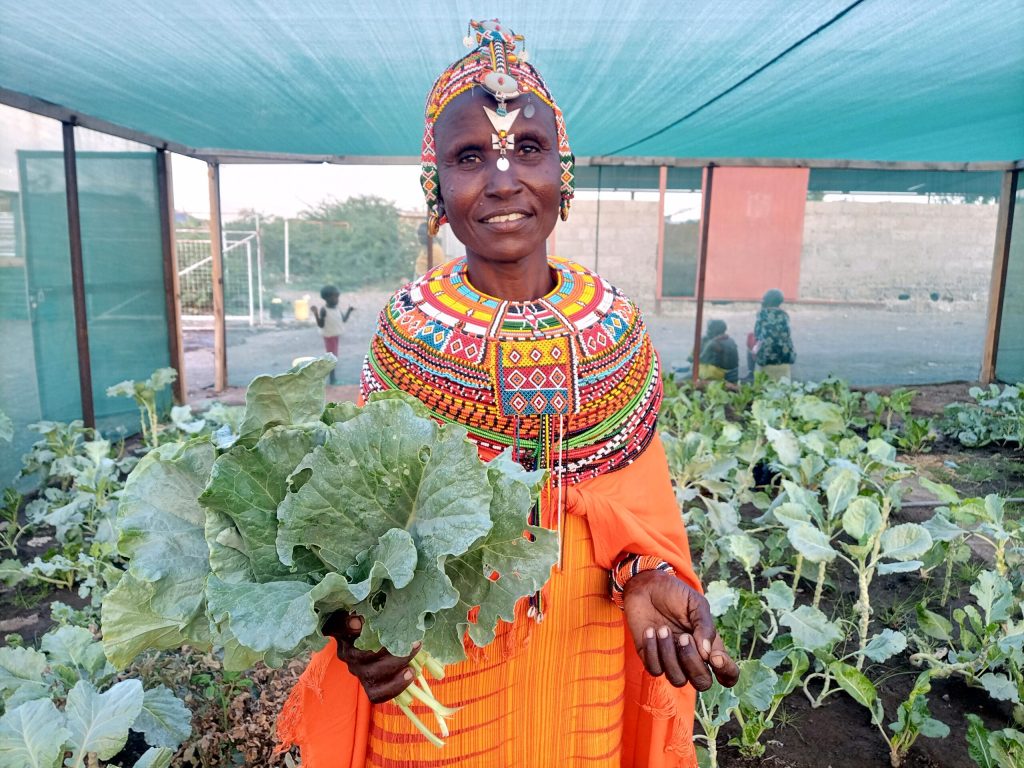
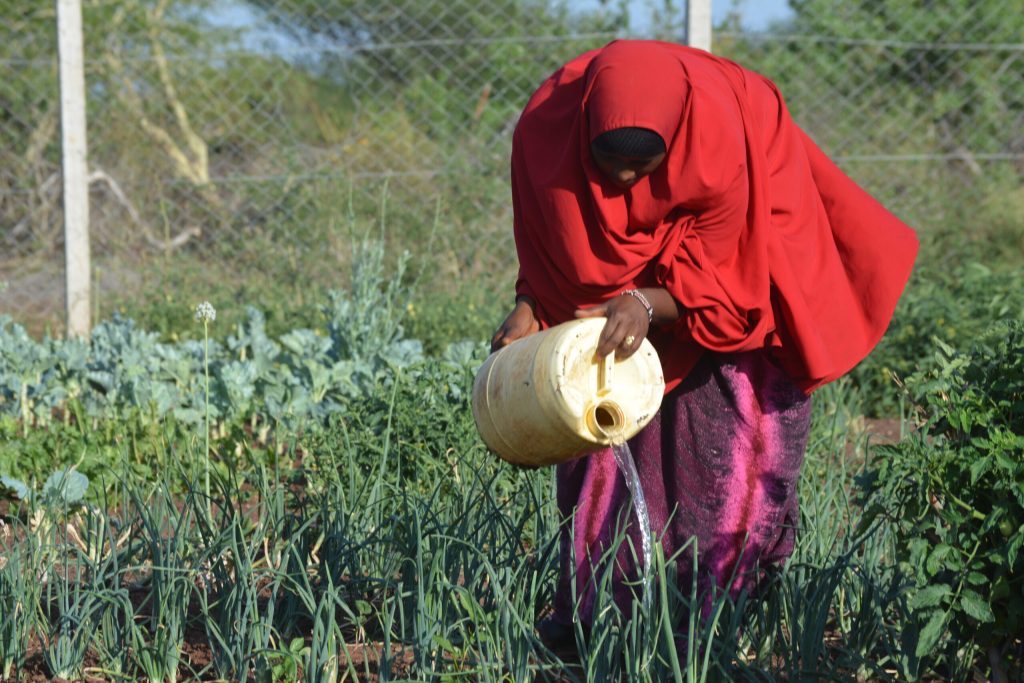
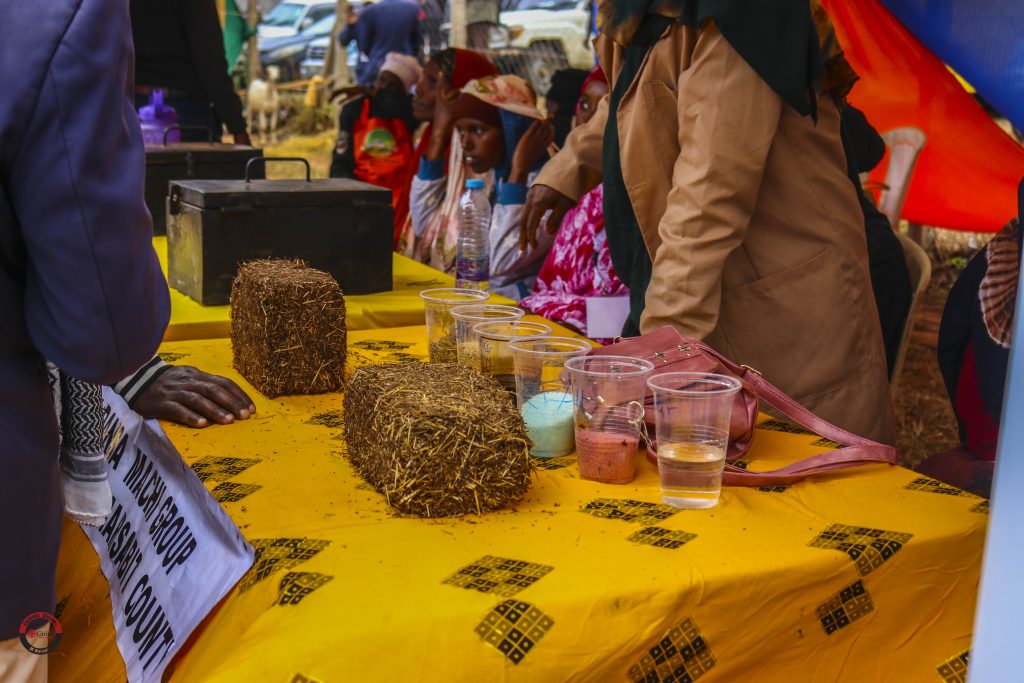
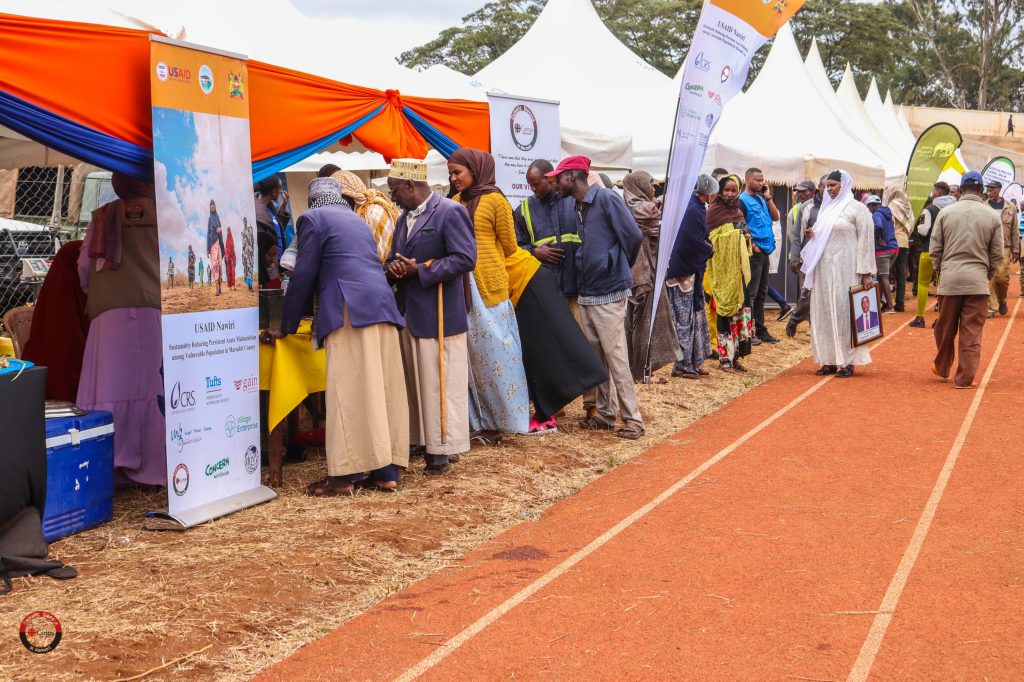
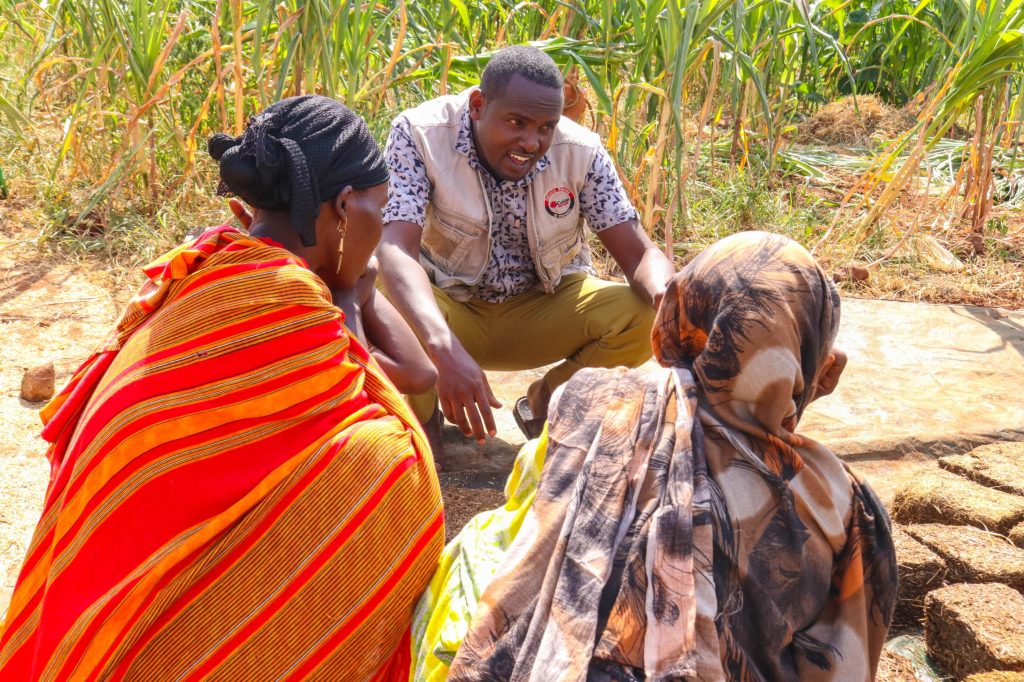
Caritas Marsabit’s health initiatives aim to improve the well-being of vulnerable populations—especially women and children—by offering curative services in diocesan health facilities and promoting preventive healthcare through outreach programs. Capacity-building of community health volunteers and awareness campaigns on nutrition and hygiene are core to this intervention.
The program`s specific objectives include
- To reduce morbidity and mortality rates of children and mothers
- To promote preventive Health practices
- Promote advocacy on health issues
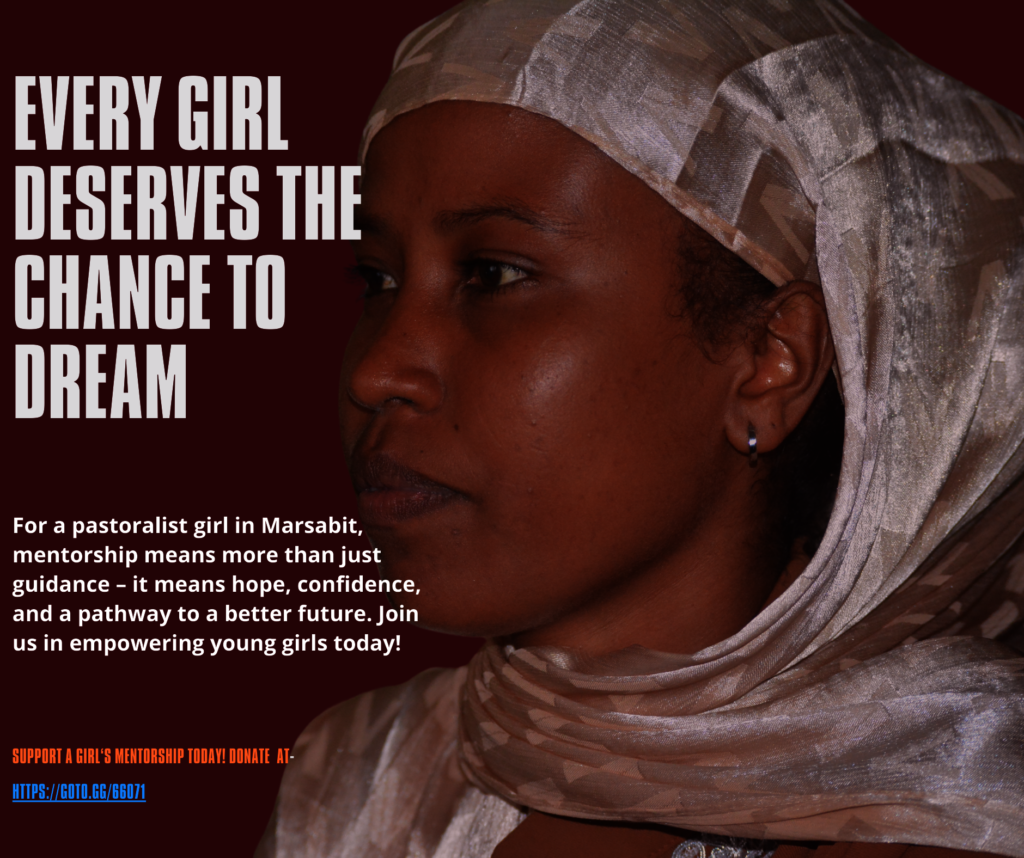
Support A Pastoralist Girl Mentorship in Marsabit
The project will conduct 5-day motivational talks with girls from different parts of the county. By collaborating with various experts, the project will support nomadic girls in transitioning from primary education to professional lives and equip them to handle life challenges. $35,905
Get Involved
Join us for a better life and beautiful future
Support A Pastoralist Girl Mentorship in Marsabit



